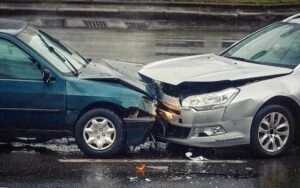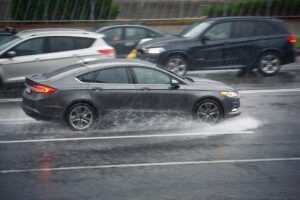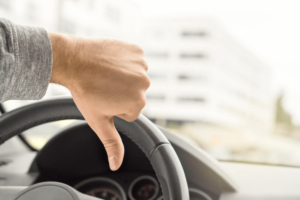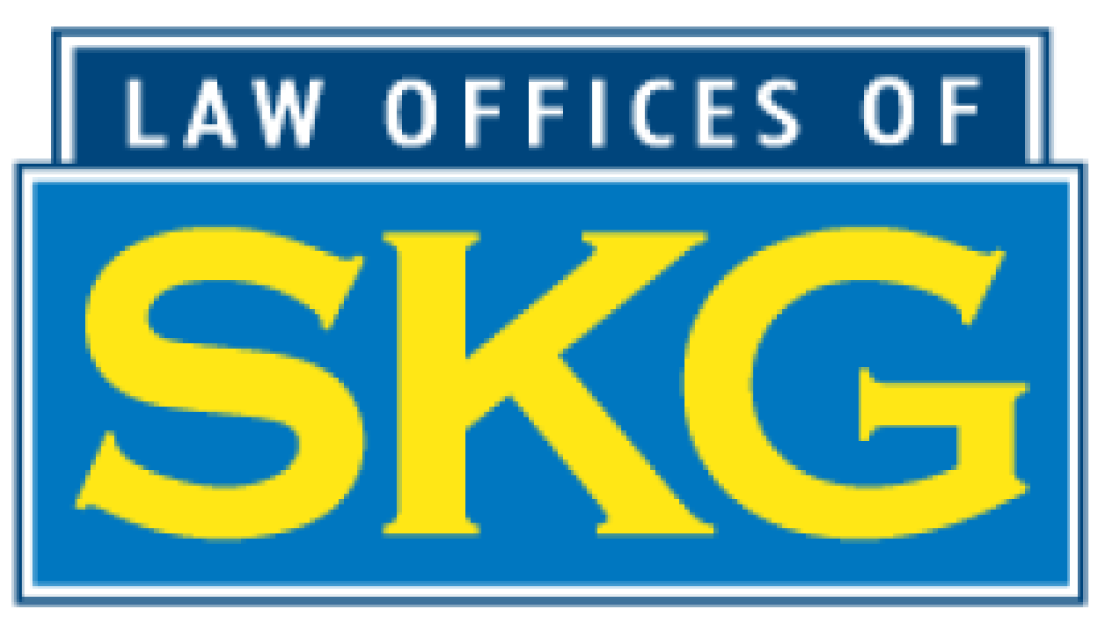
Yes, multiple parties can be at fault in a car accident. How shared fault impacts the financial recovery depends on each state’s legal system. For example, Florida has a no-fault auto insurance rule, based on which injured drivers first turn to their own policy. However, it is possible to file a lawsuit against the other driver under certain circumstances.
If you were involved in a collision, our Florida car accident lawyers will help you navigate the legal landscape. Your attorney will review your available options and help you identify the best approach for your case. At SKG, we always offer personalized legal attention to all our clients. Call us today for a free initial consultation.
Common Scenarios of Shared Fault Car Accidents
In some car accidents, both parties may share fault based on the circumstances of the incident. These shared fault scenarios can significantly impact the compensation each party is entitled to receive.
It is important to understand the legal considerations for liability in such cases to determine the fair distribution of responsibility and financial recovery. A personal injury lawyer in Davie, FL, will investigate the crash and help you seek damages.
Common scenarios of shared fault in car accidents include:
- Both drivers fail to yield the right of way: For instance, if a driver runs a red light and collides with another driver who is making an illegal turn, both parties can be considered at fault.
- Both drivers are distracted: If one driver is texting while driving and the other is eating behind the wheel, both can be held responsible for the accident.
- Failure to signal: If one driver fails to use their turn signal while changing lanes and another driver is tailgating closely, a collision could result in a shared fault.
- Speeding and sudden lane changes: When one abruptly changes lanes without signaling, and another speeding driver cannot react in time to avoid a collision, both parties may share fault.
- Merging accidents: When two vehicles attempt to merge into the same lane simultaneously, both drivers could be deemed at fault for not yielding the right of way.
It is important to understand that determining fault in a car accident is not always a straightforward process. Sometimes, both parties may bear some responsibility for the collision. Insurance companies and legal authorities must consider all factors before assigning blame.
More people choose The Schiller Kessler Group because they know that we’re a cut above other personal injury law firms.

Florida Is a No-Fault Car Insurance State
In this unique insurance model, each driver’s insurance policy covers their medical expenses and damages, regardless of who was at fault in the crash. This approach aims to expedite compensation for accident victims and minimize the burden on the court system.
While it simplifies the claims process, it also means that drivers in Florida must carry personal injury protection (PIP) coverage, which helps cover medical bills and lost wages in the aftermath of a collision.
Florida’s no-fault system has its advantages and disadvantages; it’s important to understand how it works to navigate the complexities of auto insurance. An experienced car accident lawyer in Florida will help you better understand how state laws and regulations impact your claim.
When Can You Step Outside the No-Fault System?
Stepping outside Florida’s no-fault car insurance system is possible under specific circumstances:
- You can pursue legal action against the at-fault party when the accident results in severe injuries, significant and permanent scarring or disfigurement, or loss of bodily function.
- If medical expenses exceed the coverage limits of your PIP policy, you may be able to file a liability claim.
- After a fatal car accident, a Davie wrongful death lawyer will help surviving family members file a lawsuit against the at-fault driver.
While Florida’s no-fault system offers benefits such as faster claims processing, these exceptions provide recourse for those who experience substantial harm in auto accidents.
Understanding Florida’s Modified Comparative Negligence Rule
Florida follows a system where both parties involved in an accident can share responsibility for the collision, but there’s a significant limitation. An injured party may no longer recover damages if they are more than 50% at fault for the incident. However, if their percentage of fault is less, the damages they can recover will be reduced in proportion to their degree of fault.
For example, if a plaintiff is found 20% at fault for an accident and their total damages amount to $10,000, they would receive $8,000 (subtracting 20% from the total). This rule underscores the importance of determining fault accurately. It also highlights the need for legal representation to ensure one’s rights are protected when seeking compensation following a car accident in Florida.
A Davie Car Accident Lawyer Will Help Determine Fault
Both parties can be at fault in a car accident. A car accident attorney will help you understand the legal consequences and insurance implications of a shared-fault accident.
If you or a loved one were involved in a collision, seek immediate legal assistance. At SKG, we are dedicated to helping injured victims seek justice. Contact us today to explore your legal options.
Injured? Call The Aggressive Attorneys Today





